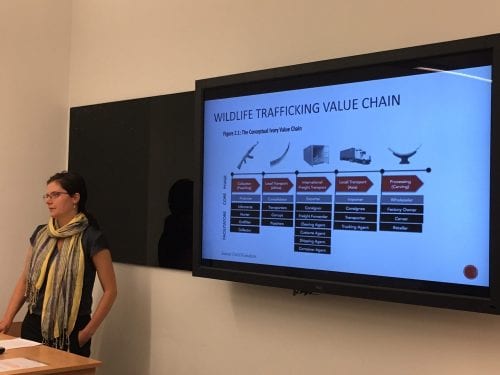Upcoming Seminar: ‘The war on Organised Crime: The African Case’
By Patricio Estevez-Soto, on 5 December 2017
We are delighted to announce our second seminar in our Seminar Series for the 2017 – 2018 academic year: ‘The War on Organised Crime: The African case’ by Dr. Sasha Jespesrson. Join us on Wednesday December 6 2017 at 17:00 at the Teaching Room of the UCL Jill Dando Institute of Security and Crime Science in 35 Tavistock Square, London, WC1H 9EZ.
As always, there will be informal networking over drinks and nibbles after the seminar.
Speaker Profile
Sasha Jesperson is the Director of the Centre for the Study of Modern Slavery at St Mary’s University Twickenham. Before coming to St Mary’s, Sasha was leading research on organised crime at the Royal United Services Institute, working closely with government departments to ensure that research is useful for strengthening policymaking on organised crime. Her research background is on organised crime and particularly the role of development is preventing and responding to criminal activity.
Sasha completed her PhD at the London School of Economics. Her research examined international initiatives to address organised crime through peace building missions under the framework of the security-development nexus, comparing examples from Sierra Leone and Bosnia. Sasha also completed an MSc in Human Rights at the London School of Economics and worked for Amnesty International for three years, primarily focusing on human rights in conflict and post-conflict contexts.
 Close
Close



